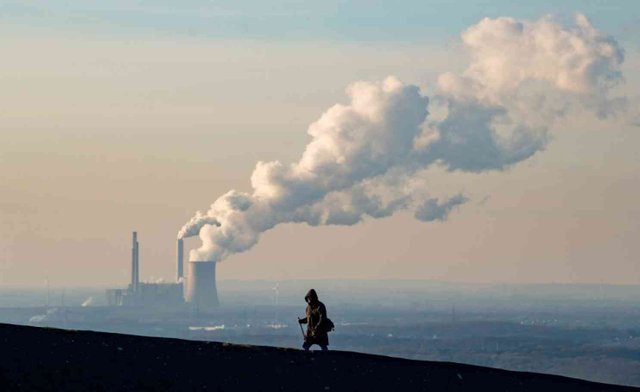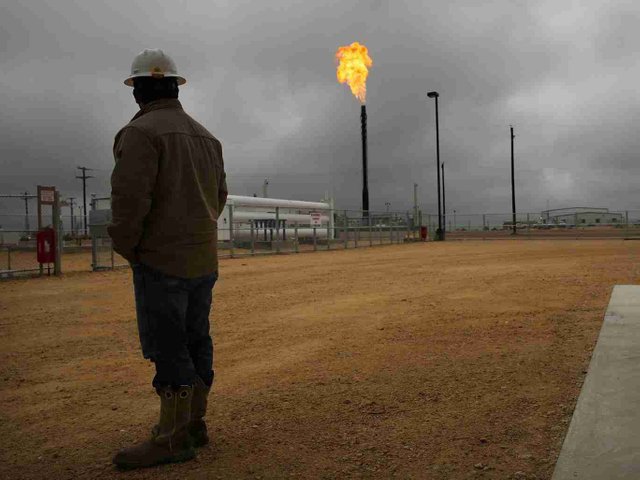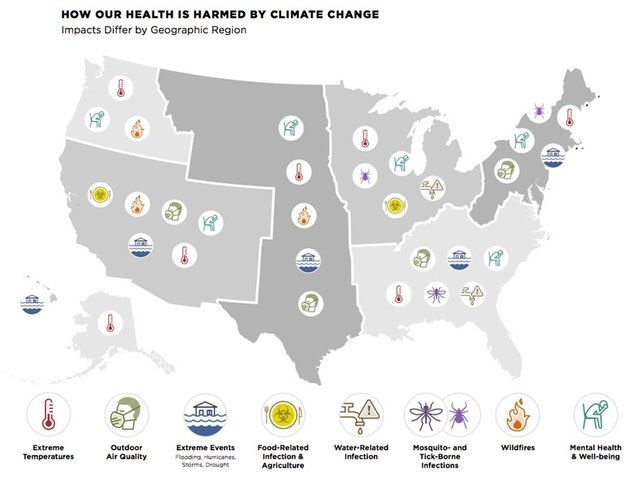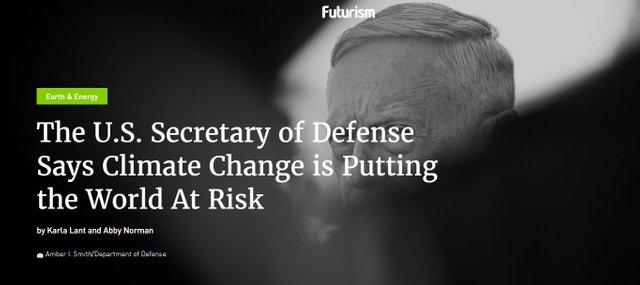Don’t look now, but reality is winning the climate debate

Many of the estimates of the long-term effects of climate change focus on outcomes that will be obvious by the year 2100. Climate change isn’t weather change, and the slow warming of the Earth is best measured by changes over decades, not days. That’s been inconvenient for those hoping to draw attention to the issue in an age when attention spans are fleeting and debates are often resolved when one side points to some anecdote as definitive — for example, when a member of the Senate thinks a February snowball somehow rebuts the idea there’s a long-term warming trend.
There are visible effects: rising sea levels, increased precipitation bursts and, of course, the three-year streak of hottest years ever. But one can’t simply point to one thing that happens and say, “That. That’s climate change.” For those disinterested in accepting the scientific consensus on the subject, that’s helpful. A concerted political effort about a decade ago leveraged the public’s uncertainty and our rhetorical habits to effectively blunt policies that would have addressed the issue. That built climate change into a central partisan litmus test. But now, as President Trump figures out how to roll back his predecessor’s efforts on climate policy, something interesting has happened: Gallup polling suggests that Americans have broadly accepted the science — and risks — of global warming.
The number of people who say that they worry “a great deal” about climate change has hit a high in Gallup’s polling on the issue, which stretches back to 1990. Looking at the past 20 years or so, you can see a pattern: a spike in concern after Al Gore’s film, “An Inconvenient Truth,” and then a sharp negative response. Since 2011, though, Americans have been more and more likely to say they find climate change concerning.
Full story at http://wapo.st/2nBMUtX
Donald Trump to scale back importance of climate change in government decisions, says White House official

Donald Trump is planning to order a dramatic reduction in the role climate change plays in policy decisions, a White House official has said.
The US President, who has called global warming a hoax created by China, is reportedly preparing to release a wide-ranging executive order overturning measures taken by Barack Obama to combat climate change.
A Trump administration official who has seen a draft of the order told Bloomberg News and Reuters that a requirement for government agencies to factor climate change into formal environmental reviews, such as those for new pipelines, would be dropped.
Mr Trump was expected to target green regulations including a federal coal mining ban and an initiative forcing states to cut carbon emissions.
Full story at http://ind.pn/2nBWpJx
Here’s how climate change is already affecting your health, based on the state you live in

Climate change is already beginning to wreak havoc upon the planet. In the short term, we're facing more winter storms, miserably hot summers, and a longer allergy season. In the long term, entire coastlines will likely disappear, threatening communities and wildlife.
On a more local level, experts say the US will be unrecognizable in 100 years.
But just how is all of this affecting you - your state, your coastline - right now?
A new report from the Medical Society Consortium on Climate and Healthreveals that different geographic regions in the US are facing a range of effects, many of which are already taking shape today. Some of them are as geographically specific as to affect only one state.
Full story at http://read.bi/2nBMVhv
The U.S. Secretary of Defense Says Climate Change is Putting the World At Risk

Climate Change & National Security
At more than 400 ppm, atmospheric CO2 has achieved its highest peak in 800,000 years. This increased level of atmospheric carbon dioxide has caused a rise in global surface temperatures of about one degree Celsius since 1880. Since 2001, Earth has experienced 15 of the 16 warmest years on record, and 2014, 2015, and 2016 have each been the warmest year ever recorded.
For U.S. Defense Secretary James Mattis, these facts are not just environmental matters; they impact national security and constitute a serious problem for the U.S. government. This overt position seems to indicate that Mattis will not be strictly toeing the Trump administration line, which is in contrast to Environmental Protection Agency head Scott Pruitt, who recently denied that carbon dioxide is causing global warming.
Full story at http://bit.ly/2nBRmIT
Prepared by @SydesJokes
Original post from: http://CrowdifyClub.com/SydesJokes
Hi Colin, (sydesjokes) I was signing up over here at steemit and found your blog post. Thanks for sharing this valuable information. I will be sure to look for your at Crowdify task. If you want to I need some points, I am running low. :-)
Downvoting a post can decrease pending rewards and make it less visible. Common reasons:
Submit